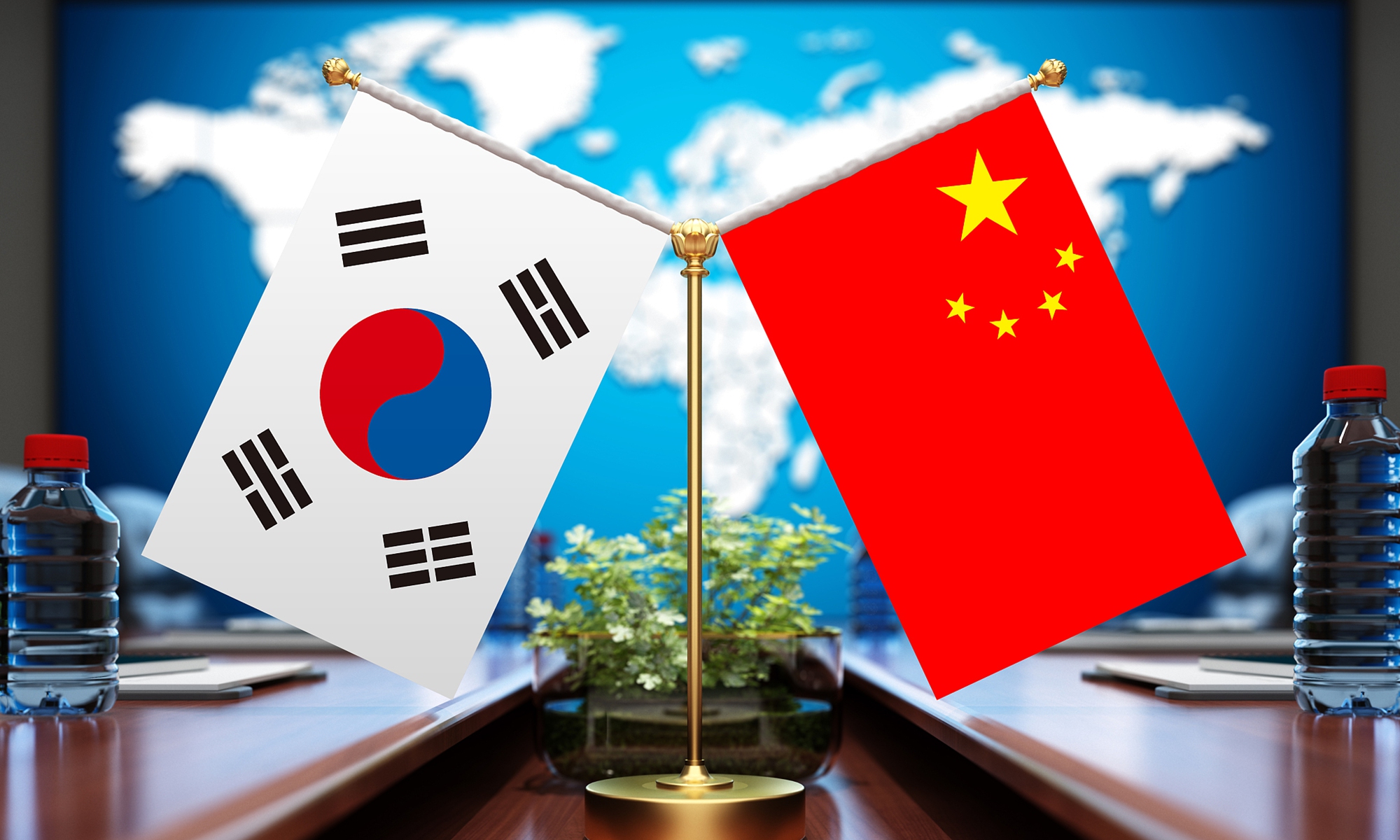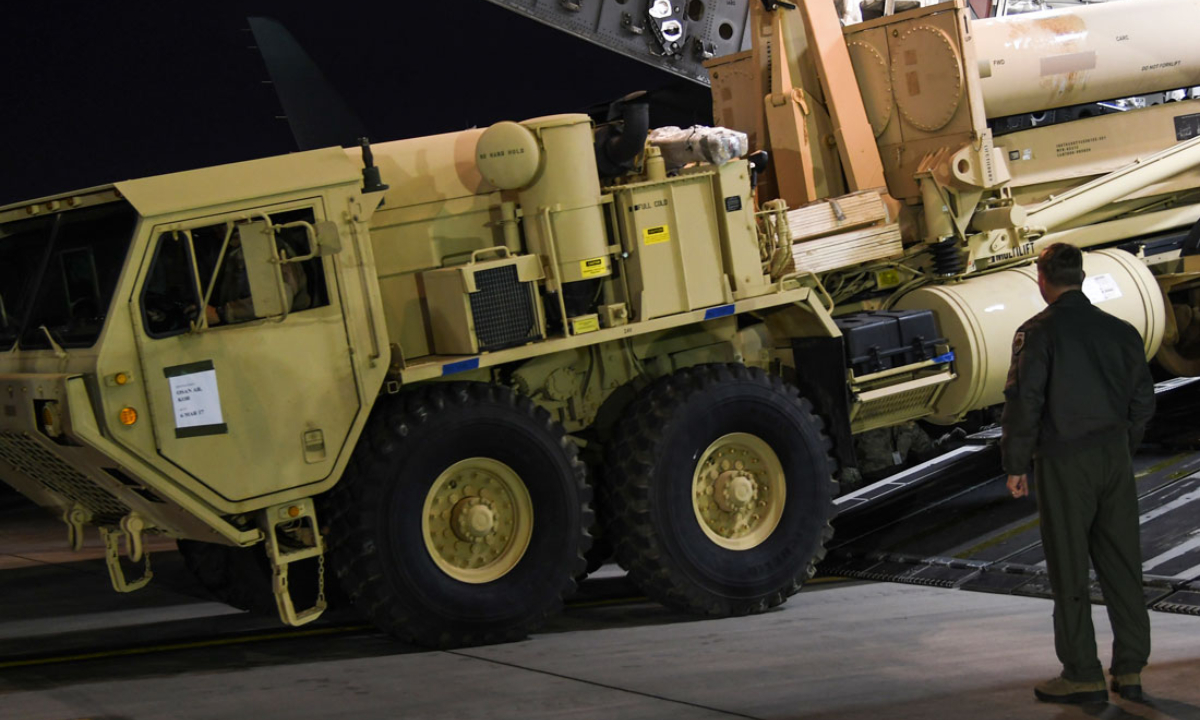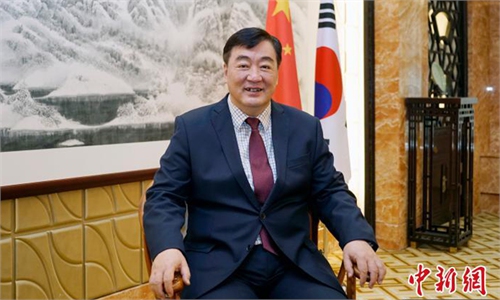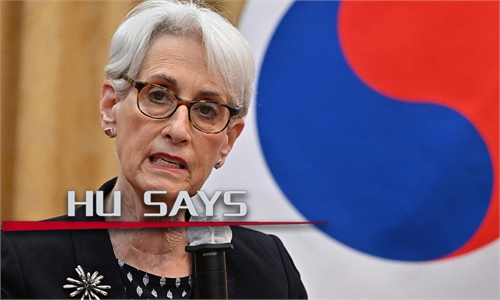China, S.Korea defense chiefs agree to enhance exchanges, as a peaceful peninsula is in their interests
Should manage risks, overcome external noise and cooperate on regional security

China and South Korea. Photo: VCG
Chinese State Councilor and Defense Minister Wei Fenghe and South Korean Defense Minister Lee Jong-sup's meeting, the first since November 2019, came as tensions rise on the Korean Peninsula. Wei reiterated China's stance to maintain peace on the Korean Peninsula and hopes China and South Korea will cooperate on realizing the denuclearization of the peninsula.
2022 marks the 30th anniversary of the establishment of China-South Korea diplomatic relations, and Wei and Lee noted both sides should enhance practical cooperation based on mutual respect and shared interests, Yonhap reported.
Wei hopes exchanges will be deepened between the defense authorities and militaries of the two countries. They also agreed to push forward mutual visits of defense ministers, strategic dialogue and other exchange activities.
On June 2, the two countries set two new military hotlines, bringing the total number to five.
The same day, China's top diplomat Yang Jiechi had a phone conversation with South Korea's Head of the Office of National Security Kim Sung-han, noting bilateral relations are off to a good start since the new South Korean government took office.
Wei and Lee's meeting, with the Korean Peninsula issue on top of the agenda, also provided an opportunity for China and the Yoon government to have comprehensive communication to better understand each other's policies and avoid unilateral moves that could bring obstacles to hard-fought bilateral friendliness or further shaken regional security, Lü Chao, an expert on the Korean Peninsula issue at the Liaoning Academy of Social Sciences, told the Global Times on Thursday.
The latest peninsula tension was sparked by combined military exercises of South Korea and the US last week involving an American aircraft carrier, the first in more than four years, after which North Korea launched missiles on Sunday in response.
As the Korean Peninsula issue enters a dangerous downward spiral, Chinese observers stressed that any party should be restrained to prevent further tensions.
Song Zhongping, a Chinese military expert and TV commentator, believes there is an important message China wants to deliver — a peaceful peninsula is consistent with both China and South Korea's interests and the issue should be handled in a peaceful way rather than "setting the wolf to keep the sheep" and allow the US to exert maximum pressure on North Korea.
As a non-regional power, the US won't care about playing out of the tensions and the costs to China, South and North Korea when conflicts over the Peninsula issue get out of control, experts said, citing the Russia-Ukraine crisis.
China, upholding the principle of pushing for dialogue and political solution to the peninsula issue, vetoed a US-backed resolution to impose more sanctions against North Korea at the UN Security Council.
Blindly adding sanctions will not help solve the problem and it's inhumane. Dialogue is the only feasible way, Xing Haiming, Chinese Ambassador to South Korea, explained China's decision during a TV interview with South Korean media on Thursday.
China respects South Korea's traditional alliance with the US, and is happy to see regional countries develop bilateral and multilateral relations based on friendly cooperation, but only if such relations do not target China, Xing said, stressing that "the Asia-Pacific should be a high ground for peaceful development, not a geopolitical arena."

The first batch of THAAD components arrives in South Korea. Photo: CFP
South Korean President Yoon Suk-yeol had pledged to deploy an additional THAAD battery in South Korea during the election campaign. According to Korea Times on Friday, Seoul is thinking of enabling the full-fledged operation of a THAAD anti-missile unit, which has been in "temporary installation" pending an environmental impact assessment.
South Korea has been claiming the THAAD is defensive. However, Song said the system is equipped with radar that can effectively detect China's objectives of strategic depth. It is not only an interception system, but also a monitoring and early warning system, posing a serious threat to China's national security, the expert said.
Such a system will break the power balance in Northeast and East Asia, seed unrest and threaten China's security environment, and add fuel to the current tensions, even risking a military conflict on the Korean Peninsula, Song warned.
Xing said in the televised interview that on the THAAD issue, the most sensitive topic in China-South Korea relations, China understands South Korea's security demand but South Korea should also understand China's concerns.
Xing said the lessons from the past must be learned and the two sides should properly manage the issue and avoid making it a prominent point or impact the hard-fought friendliness in bilateral relations.
According to Yonhap, Wei raised concerns over South Korea's engagement with the US' Indo-Pacific Strategy to contain China, and the deployment of THAAD.
The meeting lasted 75 minutes, longer than the scheduled 40 minutes and Lee told reporters the talks "were very useful, and it was such a good opportunity for the two sides to understand each other."


